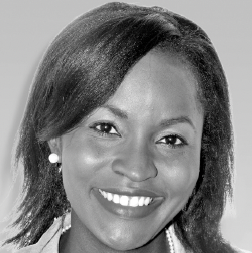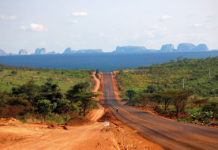The European Fund for Sustainable Development Plus (EFSD+) is part of the EU’s investment framework for external action. It ensures world-wide coverage for blending, guarantees and other financial operations. It is included in the EU’s long-term budget programme for external action: Global Europe – NDICI. It is a comprehensive instrument that includes:
- Guarantees
- Grants provided through ‘blending’ (a mix of EU grants with bank loans)
- Technical assistance to help improve the quality of projects and the implementation of reforms
- Other support tools to support the development of partner countries
EFSD+ will raise financial resources for sus-tainable development from the private sec-tor for inclusive economic development. It will support investment in partner countries to promote decent job creation, strengthen public and private infrastructure, foster renewable energy and sustainable agricul-ture, and support the digital economy.
Main features
- Approximately EUR 40 bn guarantee Geographic scope: global
- Scope: full spectrum of investment from sovereign to private sector
- Policy first based on country/regional priorities
- Funded from regional/country envelopes
- Open and collaborative architecture
Windows
1. Connectivity – Sustainable Energy, Transport, Digital
Within Energy, EFSD+ will support green transition plans in partner countries through de-risking private and public investments that are required to meet NDC targets. Support will be addressed to renewable energy, energy efficiency as well as energy transmission, distribution and storage sys-tems. This will support partner countries in reaching their commitments under the Paris Agreement commitments. Within Transport, the instrument will support a reliable core network in roads, railways, waterways and other solutions to ensure efficient links within countries, regions and between them, and to further connect the EU with its neighbours; the rollout of lower and zero-emission fuel infrastructure for road transport vehicles, the improvement of logistics systems, including digital transport technologies; to remove infrastructure and non-infrastructure bottlenecks, and to pro-mote a greener connectivity sector based on a sustainable transport model. Within Digital Development, digital connec-tivity will be supported through investments in trusted telecommunication infrastructure ensuring the take-up of the EU digital con-nectivity toolbox principles and taking into account the appropriate EU cybersecurity policies in this domain. On the digital econ-omy, priorities relate to supporting compa-nies active in the digital sectors to realise their growth potential, and to support the digitalisation of traditional companies, with a particular focus on ecommerce. On digital inclusion, a priority will be given to promoting inclusive access to digital infrastructure domestically, e-education and access to e-services.
2. Micro, Small and Medium Enterprises (MSMEs) Financing
This investment window will help MSMEs access to finance and grow by improving the supply of loans and other financial instru-ments to these enterprises, focusing in par-ticular on underserved customer groups, such as young and women entrepreneurs, migrants and MSMEs based in LDCs and fragile countries. The window will support investments and lending to reduce existing financing gaps, by unlocking opportunities private investments into MSMEs as well as de-risking local financial institutions’ portfo-lios, mobilizing domestic savings, deposits, and funds from foundations and/or remit-tances. The window will aim to increase access to affordable finance for MSMEs, and promote their integration into European value chains; taking account of circular economy goals and aiming to stimulate sus-tainable job creation and inclusive growth.
3. Agriculture, Biodiversity, Forestry, and Water
This window will target agriculture, forestry, water, oceans, land use and fisheries sec-tors to promote conservation, restoration, and sustainable management of natural resources in order to strengthen climate and biodiversity actions, while contributing to sustainable development goals, including water and food security. This will support partner countries in reaching their commit-ments under the Paris Agreement and other international environmental agreements. The instrument will catalyse investment in carbon farming, nature-based solutions, ecosystem-based approaches, deforesta-tion-free supply chains and other sustain-able practices in agriculture, conservation, forestry, land use, water, oceans and fisheries, including throughout the whole value chain, and contribute to addressing the growing issue of poor natural resource management and water scarcity (Food-Water-Energy nexus). This window will also contribute to irrigation and sanitation, enhancing universal access to safe and affordable water.
4. Sustainable Cities
Under this window, the EFSD+ will support sustainable and green urban development as a way of contributing to economic and social development, countering inequalities and promoting inclusivity. This includes actions to implement cities urban development and climate action plans, such as sustaina-ble urban mobility to urban governance and smart cities; urban economic growth, circular economy principals and decent work oppor-tunities; broader quality of life for citizens increasing and improving access to basic urban services including sanitation and water (WASH). EFSD+ operations shall promote cit-ies to advance towards the circular economy also by securing a significant improvement in the management of household municipal waste, an important reduction in waste gen-eration and landfilling, but also a substantial increase in reuse, repair and recycling. The instrument aims to increase municipalities’ limited capacities to access sufficient, long-term financing.
5. Human Development
This investment window builds on the experience with the EFSD European Health Platform, including its support to the COVAX initiative to provide COVID-19 vac-cines to low- and middle-income countries. It is expected that a major proportion of this window will be dedicated to providing additional support to these Commission priorities, including vaccine supply to low and middle-income countries, local vaccine manufacturing, disease eradication and other healthcare priorities (such as diagnostics). In addition, the investment window will also aim to address inequalities in access to affordable and high-quality health care more broadly, education, early childhood and elderly development, and social housing.
6. Sustainable Finance
This is a cross-cutting horizontal window that will support the objectives of the other five windows through sustainability-driven financial instruments, including Global Gateway projects. Several thematic finan-cial instruments continue to accelerate sus-tainable development – broadly defined as “Sustainability-related financial instruments”. With EFSD+ guarantees, this window may support financial instruments such as green, blue, social, gender and sustainability-linked bonds; also including other sustainability-re-lated instruments like syndication platforms and SDG-structured funds in order to gener-ate significant flows of capital towards sus-tainable investment in emerging and frontier markets. The investment framework also includes the External Action Guarantee and together, the two components deliver a firepower of €53,45 billion for sustainable development. The External Action Guarantee has a capacity of €130 billion to guarantee EFSD+ opera-tions. Together with the private sector and thanks to the leverage effect, this may mobilise more than half a trillion euros in invest-ments for 2021-2027.
Supporting Global Gateway to close the global investment gap
The European Fund for Sustainable Development Plus is the main financial tool to mobilise investments under Global Gateway – the EU strategy to narrow the global investment gap in infrastructure. The tool will raise up to €135 billion worth of investments in a variety of Global Gateway sectors. It is an innovative instrument that helps generate investment through guarantee capacity and blending grants. Guarantees The guarantees the instrument provides will be used for de-risking activities and lever-aging private investment, working together with the European Investment Bank (EIB) and other European financial institutions. The EFSD+ guarantees are offered on favour-able, highly competitive conditions. They allow private investors to finance projects in more challenging markets, by assuming the risks of more unstable environments while avoiding market distortions. Because the EFSD+ covers a share of the risks, the EU’s development finance partners can match the EFSD+ guarantees with their own resources, which in turn will attract additional investors. The instrument makes available €40 billion in guarantee capacity. The investment programmes are imple-mented through two main paths:
- In a partnership with the EIB, the EU is providing €26.7 billion guarantee for financing to support investments in sectors such as clean energy, green infrastructure and health. The guarantee will have a maximum impact on Global Gateway investments in partner countries where sovereign and other public sector risks are still a major bottleneck.
- Through sectoral windows amounting to €13 billion. The European Commission is proposing a specific ‘Global Gateway window’, which focuses on sectors like sustainable energy, clean transport and digital.
Blending
Where projects have a public added value that is not monetarised and that guaran-tees cannot address, the EU will use EFSD+ blending facilities. These facilities use grants and loans to support non-bankable invest-ment projects in EU partner countries while enhancing their sustainability, climate-proof-ing and development impact.
How does the investment framework work?
European and international financial institutions submit programme requests to the Commission, asking for a guarantee support for their proposed loan and equity portfolios, so that they can finance projects that other-wise would be too risky for them to finance. The Commission chooses requests that offer the best development impact and contribute most to the EU policy objectives. These loans and equity portfolios can be in support of the public sector and the private sector.
Background
EFSD+ is foreseen under Global Europe – NDICI, the EU’s main financing tool for the period 2021-2027 to contribute to eradicating poverty and promoting sustainable develop-ment, prosperity, peace and stability. In June 2020, the 2018 proposal for Global Europe was amended to reinforce the EU‘s capacity to support partners in their efforts to fight and recover from the impact of the COVID-19 pandemic, in cooperation with partners such as international financial insti-tutions, the United Nations and the World Health Organization. The original ‘European Fund for Sustainable Development’ was enhanced with double the financing capacity to create the ‘European Fund for Sustainable Development Plus’. Together with the External Action Guarantee, it is a key instrument to recover from the effects of the crisis.
The EFSD+ is 2,8 billion EUR for Sub-Sahara Africa
 Manon Kizizié, Head of Financial Division
Manon Kizizié, Head of Financial Division
Source: European Commission Webinar to CBL ACP June 14th, 2022 & DG INTPA website
![[:en]shutterstock_378626257[:]](https://perspectives-cblacp.eu/wp-content/uploads/2020/10/shutterstock_378626257-696x464.jpg)


